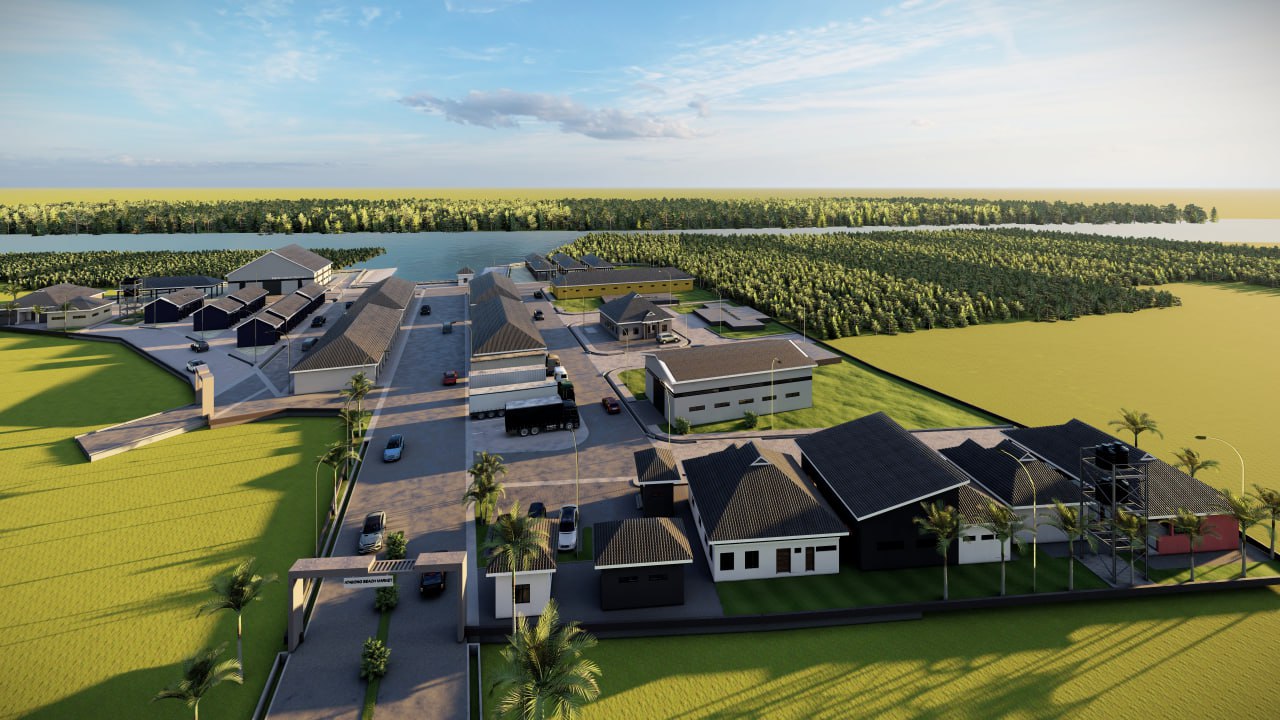By Theresa Donatus, Uyo
As Akwa Ibom State celebrates her 38th anniversary, a quiet revolution is taking shape in its rural heartlands. It is not the fanfare of urban infrastructure or political speeches that capture this transformation, but the new ease with which farmers, traders, and villagers now connect to opportunities. This is the story of the Akwa Ibom State Rural Access and Agricultural Marketing Project (AKS-RAAMP).
RAAMP, a tripartite initiative funded by the World Bank, the French Development Agency (AFD), and the Akwa Ibom State Government, has emerged as a lifeline for rural communities. Its focus is simple yet profound—improving road networks, upgrading rural markets, and promoting agricultural value chains.
In a state where over 60 percent of residents depend on agriculture and trade, the condition of rural roads often meant the difference between survival and poverty. For decades, poor access cut off farmers from buyers, increased transport costs, and discouraged investment. RAAMP was conceived to break these barriers and open rural economies to new possibilities.
So far, more than 202 kilometers of rural roads across 47 projects in 21 Local Government Areas have come under RAAMP’s transformative touch. Three major roads totaling over 21 kilometers have already been completed and await commissioning. These include the 11 km Owotuta–Nung Oku Ekere–Afaha Udo Eyop–Edeobom–Utuat market junction road in Ibesikpo Asutan/Nsit Ibom, the 7.1 km Ibiaku Obio Ndobo–Adadia road in Uruan, and shorter but critical roads in Etinan and Ibesikpo Asutan.
For rural dwellers, these roads are not just statistics. “Before now, carrying garri or cassava to the market was a nightmare,” recalls Ekaette Jonah, a cassava farmer in Ibesikpo Asutan. “Now, trucks reach us with ease, and traders from Uyo come here without stress.”
Traders are equally relieved. At Adadia market, Bassey Okon explains: “We no longer lose fish and vegetables to delays. Fresh produce gets to market on time, and customers are happier to buy.”
The benefits go beyond roadways. In Ikot Abasi I–Ikot Inyang Ossom–Afaha Iman, a collapsed bridge had once isolated entire communities, crippling trade and family ties. RAAMP’s intervention with a double-cell 4×12 meters drainage structure restored both mobility and hope, reconnecting people and reigniting economic life.
Market development is another highlight of the project. RAAMP is upgrading three rural markets into modern agro-logistics centers—one in each senatorial district. These hubs come equipped with lock-up shops, parking spaces, cold storage, warehouses, banking halls, water supply, electricity, and perimeter fencing. For farmers and traders, they represent secure, hygienic, and profitable environments that minimize waste and maximize income.
Pastor Gideon Cephas Akpan, State Project Coordinator, emphasizes that “the agro-logistics centers will not just boost commerce but also strengthen rural economies, create jobs, and make our markets competitive nationally and regionally.”
Innovation has also come in the form of a partnership with the International Labour Organization (ILO) on Routine Road Maintenance. Akwa Ibom is among only five pilot states adopting this model, which covers 200 km of routine maintenance and 50 km of spot improvement. The program, with 52% of jobs reserved for women and persons with disabilities, doubles as both an infrastructure and empowerment tool.
The ripple effects are far-reaching. RAAMP has engaged 12 construction firms and 4 consultancy companies, directly employing hundreds of youths and indirectly sustaining many more as suppliers, artisans, and service providers. Crucially, it has also built the capacity of indigenous contractors, enabling local firms like Basse Engineering & Mitchell Ltd and AYF Development Nigeria Ltd to meet World Bank standards and execute major contracts.
Governor Pastor Umo Eno’s ARISE Agenda, which prioritizes rural development and agricultural value chains, finds clear expression in RAAMP’s work. Dr. Offiong Offor, Commissioner for Agriculture, describes the initiative as a “multiplier blessing to the state economy,” reaffirming government’s commitment to counterpart funding.
As Akwa Ibom clocks 38, RAAMP stands as more than a project—it is a legacy of empowerment. It has reduced poverty through better mobility, expanded market access, empowered women and vulnerable groups, and rebuilt social cohesion by reconnecting once-isolated communities.
“Every kilometer built, every market upgraded, every job created is a step closer to shared prosperity for all Akwa Ibom people,” says Pastor Akpan. His words echo the lived experiences of countless rural dwellers whose lives are now brighter.
At 38, Akwa Ibom celebrates not just its past, but a future of inclusive growth. With RAAMP driving transformation at the grassroots, the state is well on course to ensure that no community is left behind.





